Major shift in Pakistan politics, emergence of a Maulana
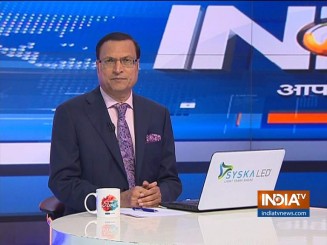 The huge turnout at the rallies of Pakistani cleric and Jamiat Ulema-e-Islam chief Maulana Fazal-ur-Rehman in Multan, Lahore and other cities clearly signifies that the common man in Pakistan is fast losing trust in Prime Minister Imran Khan’s leadership. The Maualan’s ‘Azadi March’ will reach Islamabad today, and though the religious leader claims that this is not a sit-in, there are indications that there could be a flash point.
The huge turnout at the rallies of Pakistani cleric and Jamiat Ulema-e-Islam chief Maulana Fazal-ur-Rehman in Multan, Lahore and other cities clearly signifies that the common man in Pakistan is fast losing trust in Prime Minister Imran Khan’s leadership. The Maualan’s ‘Azadi March’ will reach Islamabad today, and though the religious leader claims that this is not a sit-in, there are indications that there could be a flash point.
What began as a movement against what the Maulana described as “a rigged election”, has now turned into a movement that reflects widespread public anger over the non-performance of Imran Khan’s government.
Imran Khan, when he took over as Prime Minister in August last year, had promised a corruption-free ‘Naya Pakistan’ modelled on the Islamic tenets of ‘Riyasat-e-Madina’. Former Pakistan PM Nawaz Sharif, his daughter and other relatives, and former President Asif Ali Zardari were thrown behind bars in the name of accountability. Nawaz Sharif is now fighting a battle against death in a hospital.
Zardari and Bilawal Bhutto’s Pakistan Peoples Party and Sharif’s Pakistan Muslim League (N) are openly supporting the Azadi March. The Maulana has followed the same path that Imran Khan had traversed till last year by heading a march against the then PM Nawaz Sharif. Imran Khan had promised the people that he would lower inflation, root out corruption and revamp the economy, and the Maulana is now promising the same.
The Pakistani economy is presently in doldrums. Its foreign exchange reserves has dwindled to $7.9 billion, even less than that of Nepal and Bangladesh. Price of milk have shot up to Rs 108-140 per litre, petrol is being sold at Rs 114, diesel at Rs 127 per litre, tomatoes at Rs 75 per kg. The common man is groaning under the burden of rising prices. On the diplomatic front too, Imran Khan’s government has cut a sorry figure. There were few takers when Pakistan raised a hue and cry over the abrogation of Article 370 in Kashmir.
It is under these circumstances that the Maulana raised the question at his Lahore rally, ‘for how long will the opposition leaders be victimized in the name of accountability?’ The Maulana, unwillingly or so, has now become the voice of the people of Pakistan. He told the rally that Imran Khan, during his 15-month rule, has destroyed the economy, agriculture, industry and trade sectors and has pushed the Pakistani nation to the brink of starvation.
Since Nawaz Sharif is in jail, and the people are yet to repose their trust in the Zardari-Bhutto family, the Maulana is gradually emerging as the people’s choice. Naturally, the powers that be in Islamabad, particularly the Army, is now guarded. Internet connections have been snapped, flying of drones has been banned, and too many restrictions have been clamped in Islamabad. There are two options now before the establishment – either Imran Khan resigns, or the army crushes the protesters to save Imran Khan from being toppled.
Click Here to Watch Full Video| Get connected on Twitter, Instagram & Facebook
Why terrorists in Kashmir Valley are desperate?
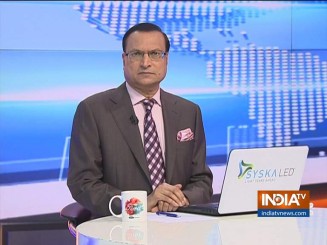 The gruesome killings of migrant labourers and truck drivers by terrorists in Kashmir Valley clearly signify that the separatists and their handlers across the border are desperate. When Article 370 was revoked by Parliament in the first week of August, the separatists and terrorists had expected common people in the valley to come out on the streets to protest. Their Pakistani handlers had expected that the security forces would resort to firing leading to more bloodshed in the valley, but this did not happen. Neither a single bullet was fired, nor a single drop of blood was shed.
The gruesome killings of migrant labourers and truck drivers by terrorists in Kashmir Valley clearly signify that the separatists and their handlers across the border are desperate. When Article 370 was revoked by Parliament in the first week of August, the separatists and terrorists had expected common people in the valley to come out on the streets to protest. Their Pakistani handlers had expected that the security forces would resort to firing leading to more bloodshed in the valley, but this did not happen. Neither a single bullet was fired, nor a single drop of blood was shed.
On the contrary, during the last three months, there was peace in the valley, children went to schools to give their board exams and hundreds of youths appeared at police and army recruitment drives for jobs.
Out of sheer desperation, the terrorists forced people to stay inside their homes, intimated shopkeepers forcing them to keep markets closed and started killing truck drivers who had come from neighbouring states to transport apples from orchards. When a delegation of MPs from European Union visited the valley on Tuesday to assess the situation with their own eyes, the terrorists turned more desperate.
In Kulgam, they lined up migrant labourers, all Muslims from West Bengal, and executed them. This heinous attack was their way of attracting world attention, but the world view about Kashmir has changed totally. Most of the world powers now agree that terrorism in the valley is the main scourge that has bedevilled the lives of common Kashmiris.
The common people in Kashmir is fed up of militancy and wants peace to return to the valley. They want prosperity, peace and development, and it is a heartening sign that the Centre has initiated many programmes for the well being of Kashmiris, since they are now also part of the Indian mainstream after the revocation of Article 370. The common Kashmiri wants hospitals, schools, colleges, industries, better infrastructure and transport so that the valley can regain its majestic position as a paradise on Earth.
Click Here to Watch Full Video| Get connected on Twitter, Instagram & Facebook
The significance of European Union MPs visiting Kashmir valley
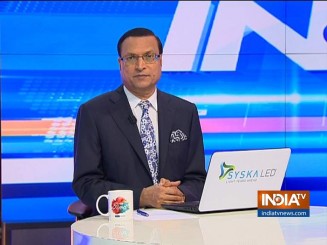 A group of MPs from European Parliament will be visiting the Kashmir valley on Tuesday to assess the present ground situation since the abrogation of Article 370 by the Indian Parliament in August this year. This is a significant shift in the policy of Modi government on Kashmir.
A group of MPs from European Parliament will be visiting the Kashmir valley on Tuesday to assess the present ground situation since the abrogation of Article 370 by the Indian Parliament in August this year. This is a significant shift in the policy of Modi government on Kashmir.
The European MPs met the Prime Minister Narendra Modi and National Security Adviser Ajit Doval on Monday and discussed the current situation. It was clarified that the MEPs from Italy, UK, France, Germany and Poland will be visiting Kashmir ‘in their personal capacities’.
This visit signifies India’s desire to tell the world the true story in the Kashmir valley. Some Indian politicians have raised the question of why leaders from foreign countries are being allowed to meddle in Kashmir issue that concerns only India and Pakistan.
The quiet shift in diplomacy is because India wants to tell the world that it has nothing to hide and all the accusations of human rights violations and clampdown that are being leveled by Pakistan are baseless. Not a single bullet has been fired in the valley in the last three months.
It is true that complete normalcy is yet to be restored in the Valley, but given the situation that had developed over the last 70 years, with various vested interests muddying the waters and with Pakistan openly aiding terrorists, the government’s response this time is well calibrated and for the first time, a ray of hope has emerged for the people of Kashmir. Let the world see for itself the change that has come to the Valley.
It is true that there are still restrictions in place in the Valley. Internet connections have not been restored because the terrorists have been openly using this channel to communicate. Mobile and land telephone connections have been restored, and the clampdown is being graded down gradually. Kashmiri youths have been taking part in army and police recruitment drives in large numbers.
Under these circumstances, one should realize that the restrictions have led to a situation where not a single bullet has been fired, nor a drop of blood has been shed. We need to wait for some more time as the terrorists and their masterminds sitting across the border will try their best to create mayhem, and we must now allow them to succeed, at any cost. Patience and caution are the need of the hour.
Click Here to Watch Full Video | Get connected on Twitter, Instagram & Facebook
BJP played a wise move in striking a coalition deal with Chautala
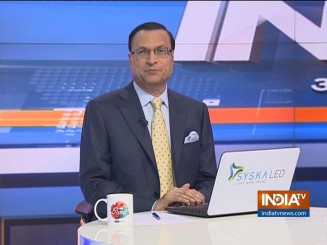 The stage is now set for a BJP-JJP coalition government in Haryana, after both the parties on Friday night announced a power-sharing deal with Manohar Lal Khattar as chief minister and JJP chief Dushyant Chautala as Deputy Chief Minister. BJP president Amit Shah, announcing the decision, said that the decision to give the deputy CM post to Dushyant Chautala was taken “to respect the spirit of the mandate”.
The stage is now set for a BJP-JJP coalition government in Haryana, after both the parties on Friday night announced a power-sharing deal with Manohar Lal Khattar as chief minister and JJP chief Dushyant Chautala as Deputy Chief Minister. BJP president Amit Shah, announcing the decision, said that the decision to give the deputy CM post to Dushyant Chautala was taken “to respect the spirit of the mandate”.
Amit Shah has surely played a wise move to ensure that Haryana is given a stable government, sparing the hassles of dealing with all independent MLAs who had already offered support. In the power game, Dushyant Chautala has emerged as a wise politician. At a young age, he broke away from his grandfather’s party INLD, set up his own outfit, campaigned hard and bagged 10 seats to take up the role of kingmaker. After the results were out, Dushyant Chautala exercised utmost patience, took his party leaders into confidence and negotiated a deal that appears to be sensible.
I am describing Dushyant Chautala as wise because the BJP had already secured the support of as many as eight independents, and was in a position to form the government, as it was six short of majority. Since JJP is a new party, Dushyant will now utilize the trappings of power to expand his party’s support base. However the Haryana coalition deal may have some repercussions in Maharashtra, where Shiv Sena is clamouring for the CM post. BJP leadership has already clarified that the question of CM post is non-negotiable, and Devendra Fadnavis will continue to be the chief minister.
The swiftness with which BJP struck a deal with JJP is in striking contrast with the lethargy that has engulfed the Congress party, which, under Bhupinder Singh Hooda’s leadership managed to win 31 seats. There was a time when Congress leaders were known for their clever negotiation skills in securing support to form governments in the states, but given the recent examples of Goa and now Haryana, it is clear that Congress leadership failed because of lethargy.
Not only this, the party leadership took time in handing over leadership to Hooda, the party’s poll campaign started late and now the delay in initiating efforts for government formation.
The surprising thing to note is, the results of Haryana and Maharashtra were declared two days ago, but nobody knows where Rahul Gandhi is and what he is doing. Neither Rahul gave any statement about the results, nor did he initiate any effort towards government formation. One senior Congress leader told me in private that it was better that Rahul did not campaign in Haryana, otherwise the party could not have bagged 31 seats.
Click Here to Watch Full Video | Get connected on Twitter, Instagram & Facebook
How Modi effectively prevented poll reverses in Haryana, Maharashtra
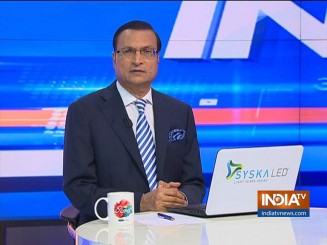 The BJP-Shiv Sena alliance trounced the Congress-NCP combine in the Maharashtra assembly elections and secured a comfortable majority. In Haryana, the BJP emerged as the largest party with six seats short of majority. All eyes are now on independent MLAs and Dushyant Chautala’s Jannayak Janata Party as the BJP has begun efforts for government formation. BJP has both the options available and it is up to the party leadership to decide.
The BJP-Shiv Sena alliance trounced the Congress-NCP combine in the Maharashtra assembly elections and secured a comfortable majority. In Haryana, the BJP emerged as the largest party with six seats short of majority. All eyes are now on independent MLAs and Dushyant Chautala’s Jannayak Janata Party as the BJP has begun efforts for government formation. BJP has both the options available and it is up to the party leadership to decide.
In Haryana, BJP had to pay the price for mistakes committed in ticket distribution. Several party dissidents, who were denied tickets, contested as independents and won. There were several other reasons too for the party failing to repeat its 2014 performance. However, nobody can dispute that Chief Minister Manohar Lal Khattar provided a corruption-free rule for five years and treated all castes and communities without giving any undue favour. However, the voters were unhappy with the performance of the ministers. Seven out of eight ministers lost.
This assembly election marked the emergence of Dushyant Chautala as a major non-Congress opposition leader. He campaigned throughout the state and gave tickets to rebels from BJP and Congress, and his party JJP managed to win 10 seats in its electoral debut. Not a small performance for a leader aged 31 years. Dushyant became the youngest MP in Lok Sabha at the age of 26, formed his party at the age of 30 and challenged his own family members in politics. Today, the Indian National Lok Dal set up by his grandfather Om Prakash Chautala could win only a single seat.
BJP may manage to form the government in Haryana with the support of independents, but two concerns need to be taken note of.
One, the party leadership was too overconfident. It was aiming at 75-plus seats, and had thought there was no challenge worth the name with the Chautala family and Congress divided. This assessment was proved wrong. Had Prime Minister Narendra Modi not campaigned in the state, the party could have fared badly. During the Lok Sabha polls, under Modi’s leadership, BJP won all the ten LS seats which accounted for 79 assembly segment leads. This has now dwindled to almost half in the assembly polls.
Two, the Congress went to Haryana polls with a clearly divided house and yet won 31 seats. The state unit chief Ashok Tanwar who led the party for last five years, quit and supported Dushyant Chautala’s party. Imagine what the Congress could have achieved if there had been unity in the state unit. The tables could have turned for the BJP in the final run.
In Maharashtra, the election results this time cannot be compared with the 2014 assembly poll results. At that time, the four main players, BJP, Shiv Sena, Congress and NCP were contesting separately. The BJP leadership assessed that there could be anti-incumbency factor and therefore, set up an alliance with the Shiv Sena. BJP contested 150 seats, and won 102, while the Shiv Sena contested 124 and won 61 seats.
Both the BJP and Shiv Sena had to face problems. One, from party rebels who had crossed over to other parties after being denied tickets, and two, both the parties accomodated turncoats from other parties and gave them tickets. The net result: lesser gains, more losses.
Only a large-hearted statesman like Narendra Modi had the sagacity to praise his state leaderships despite poll reverses. He gave the credit for victories in both Maharashtra and Haryana to the state leaderships. The hard fact is that the BJP poll campaign always relies on Modi. Had the Prime Minister not toured both the states to address rallies, the results could have been unfavourable. Voters in both states have tremendous trust in Modi’s leadership and they came out to vote for the party regardless of the performance of the state units.
Click Here to Watch Full Video | Get connected on Twitter, Instagram & Facebook
No surprise in exit poll predictions for Maharashtra, Haryana
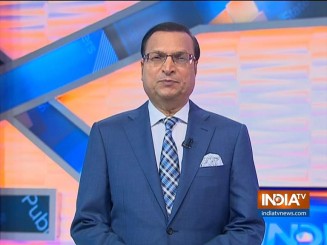 The ruling Bharatiya Janata Party may win both the Maharashtra and Haryana assembly elections with comfortable majorities if the exit poll predictions telecast on Monday night are any indication. During the month long campaign in both the key states, the indications about voters’ mood were fairly evident.
The ruling Bharatiya Janata Party may win both the Maharashtra and Haryana assembly elections with comfortable majorities if the exit poll predictions telecast on Monday night are any indication. During the month long campaign in both the key states, the indications about voters’ mood were fairly evident.
The most significant aspect of the Maharashtra assembly polls this time was that the Shiv Sena, which had been constantly quarreling with its ally BJP for the last three to four years, sincerely joined hands and went to the electorate with a united face. Both the BJP and Shiv Sena put in their best efforts, with Prime Minister Narendra Modi, BJP chief Amit Shah, Shiv Sena Chief Uddhav Thackeray and all top leaders addressing election rallies.
On the other hand, the NCP and Congress which had stitched up their alliance months ago, and had finalized the candidates in advance, went to the electorate, but there was lack of vigour and stamina in the campaign. The NCP leaders toiled hard. Their septuagenarian supremo Sharad Pawar even addressed a rally during heavy downpour. One should marvel at his stamina given the condition of his health at this old age. On the other hand, Congress leader Rahul Gandhi campaigned in Maharashtra for only two days, and his speeches were lacklustre. It appeared as if he was campaigning without an iota of motivation.
Prime Minister Narendra Modi was BJP-Shiv Sena’s star campaigner. He raised local issues in his speeches and also pointed towards confusion in Congress and NCP ranks over a national issue like revocation of Article 370 in Kashmir. One should not be surprised if the results on October 24 may prove the exit poll predictions true.
The most significant feature in Haryana assembly elections was that the two main opposition parties that had given a strong fight to the BJP last time, appeared to be completed divided into warring camps.
Former CM Bhupinder Singh Hooda and former state Congress chief Ashok Tanwar first fought over posts, then over the selection of candidates and later worked against each other. This infighting has cost the Congress dearly. Ashok Tanwar went to the extent of extending support to Dushyant Chautala’s Jantantrik Janata Party. INLD chief Om Prakash Chautala’s family has practically disintegrated into various factions, with each faction setting up a different party. Instead of giving a fight to the BJP, they appeared to be fighting one another. The results of this infighting are there for all to see in the exit polls.
Congress leader Rahul Gandhi went to Haryana to campaign only to fulfill a formality. On the other hand, Prime Minister Narendra Modi addressed more than ten rallies, and stars like Hema Malini, Sunny Deol and UP CM Yogi Adityanath were also roped in. One should, therefore, not be surprised if the exit poll predictions prove true.
Click Here to Watch Full Video | Get connected on Twitter, Instagram & Facebook
Let us exercise restraint over murder of a Hindu leader in Lucknow
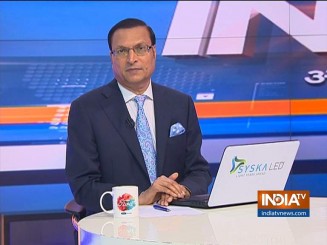 A local Hindu outfit leader Kamlesh Tiwari was brutally murdered by two persons in Lucknow on Friday and the Uttar Pradesh police has formed a Special Task Force to investigate and nab the accused. Tiwari was shot and stabbed, and his throat was slit by the assassins. Latest reports said that three suspects have been nabbed in this connection by Gujarat Anti Terrorist Squad in Surat, while the two murderers are yet to be arrested.
A local Hindu outfit leader Kamlesh Tiwari was brutally murdered by two persons in Lucknow on Friday and the Uttar Pradesh police has formed a Special Task Force to investigate and nab the accused. Tiwari was shot and stabbed, and his throat was slit by the assassins. Latest reports said that three suspects have been nabbed in this connection by Gujarat Anti Terrorist Squad in Surat, while the two murderers are yet to be arrested.
Kamlesh Tiwari had set up a political outfit named Hindu Samaj Party. In the recent past, he had courted controversy by making disparaging remarks against Islam and Prophet Mohammad. Two Islamic clerics from Bijnor had offered a bounty of Rs 1.5 crore on his head in 2008.
The murder triggered protests in Lucknow and sparked outrage on social media. The UP police DGP has promised to probe the murder from all angles, and has promised stringent action against the murderers. Defence Minister and Lucknow MP Rajnath Singh spoke to the DGP and DM and asked them to take prompt action.
I would appeal to all those who are spreading outrage on social media to exercise patience and wait for the outcome of police probe. It is a fact that there were several cases pending against Kamlesh Tiwari and he had been receiving threats to his life. Some vested interests are trying to whip up communal tension through social media after this heinous murder. We should be wary of their machinations and wait for the police to complete its probe.
Click Here to Watch Full Video | Get connected on Twitter, Instagram & Facebook
Why are the Congress workers totally demoralized?
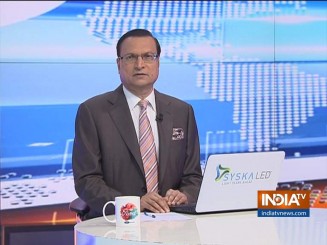 Even as Prime Minister Narendra Modi, Home Minister Amit Shah and the entire galaxy of top BJP leaders are busy campaigning for the assembly polls in Haryana and Maharashtra, the main opposition party Congress has cut a sorry figure.
Even as Prime Minister Narendra Modi, Home Minister Amit Shah and the entire galaxy of top BJP leaders are busy campaigning for the assembly polls in Haryana and Maharashtra, the main opposition party Congress has cut a sorry figure.
Congress President Sonia Gandhi did not address a single election rally in either of the states. One can understand that her health does not permit her to go out on campaign, but what about her daughter Priyanka Vadra and son Rahul Gandhi?
Priyanka Vadra is confined to her home state of Uttar Pradesh and she did not address a single election rally in either Haryana or Maharashtra.
The party’s star campaigner Rahul Gandhi, after spending private time in a Southeast Asian country, returned home and spent barely two days addressing election meetings. At his meetings, Rahul delivered speeches that were given almost six months back, raising old and dead issues like Rafale deal. He did not address a single election rally during the last two days.
Naturally, Congress workers are feeling demoralized, with party leaders either jumping ship or divided into camps in both states. A sorry state of affairs in the 134-year-old party that ruled India for several decades.
On the other hand, leaders like Asaduddin Owaisi with limited reach are addressing more rallies with focus on pockets where they have a strong influence. Leaders like Owaisi can harm the fortunes of NCP and Congress in a large number of constituencies in Maharashtra.
Click Here to Watch Full Video | Get connected on Twitter, Instagram & Facebook
Let all sides refrain from comments till SC gives its verdict on Ayodhya
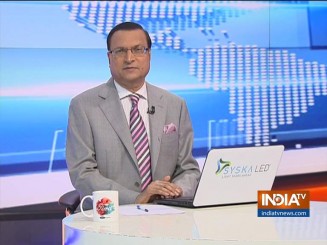 The Supreme Court on Wednesday reserved its verdict on the 150-year-old Ayodhya dispute after 40-day-long marathon arguments by lawyers from both sides. Chief Justice Ranjan Gogoi, heading the five-judge Constitution Bench, will be retiring on November 17 and the apex court is expected to deliver its verdict by that date.
The Supreme Court on Wednesday reserved its verdict on the 150-year-old Ayodhya dispute after 40-day-long marathon arguments by lawyers from both sides. Chief Justice Ranjan Gogoi, heading the five-judge Constitution Bench, will be retiring on November 17 and the apex court is expected to deliver its verdict by that date.
The verdict will be given on cross-appeals filed by Hindu and Muslim parties who have been embroiled for the last 70 years claiming ownership over the 2.77 acre disputed site. These parties have challenged the Allahabad High Court’s 2010 verdict dividing the disputed land equally among Ram Lalla, Nirmohi Akhara and UP Sunni Waqf Board.
The apex court asked parties to file by Saturday written submissions on how it could mould relief granted by the High Court. There were theatrics on the last day of hearing when lawyer Rajeev Dhavan representing Muslim parties tore into pieces a map which Hindu Mahasabha had cited as depicting the “exact location of Lord Ram’s birthplace”. Dhavan later said he tore up the map because the Chief Justice told him he could tear it off if he found it irrelevant.
There was confusion in the morning when it was initially reported that the UP Sunni Waqf Board has agreed to withdraw its appeal. The Waqf Board chief later denied this report. However, in another development, the SC-appointed mediation panel has reportedly informed the apex court in a sealed cover that the Muslim parties have agreed to give up their claim on the land for the construction of Ram temple. The report said, parties who signed the settlement included the Sunni Waqf Board, Nirvani Akhara, Hindu Mahasabha and Ram Janmasthan Punarudhar Samiti.
The most significant part of all that has transpired before the apex court is that the Constitution Bench patiently gave a hearing to all parties in the dispute. Both the sides admitted that the apex court heard their arguments in full. There should now be no room for complaints when the apex court gives its historic verdict next month.
I sincerely hope all sides will respect the SC verdict on Ayodhya. However, all parties need to be careful not to give credence to speculations, rumours or provocative remarks that could unnecessarily fuel emotions among the people. All sides should refrain from making objectionable comments till the time the apex court delivers its judgement.
Click Here to Watch Full Video | Get connected on Twitter, Instagram & Facebook
Why Modi said, Xi Jinping liked Aamir Khan movie ‘Dangal’
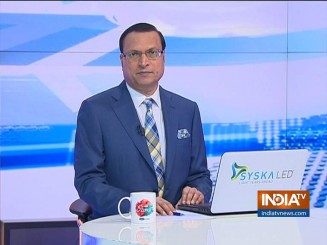 Trust Prime Minister Narendra Modi to connect issues that matter to common voters. On Tuesday, while addressing a BJP election rally in Charkhi Dadri, Haryana, Modi revealed that the Chinese President Xi Jinping told him during an informal meeting that he had seen Bollywood star Aamir Khan’s superhit movie ‘Dangal’.
Trust Prime Minister Narendra Modi to connect issues that matter to common voters. On Tuesday, while addressing a BJP election rally in Charkhi Dadri, Haryana, Modi revealed that the Chinese President Xi Jinping told him during an informal meeting that he had seen Bollywood star Aamir Khan’s superhit movie ‘Dangal’.
Charkhi Dadri happens to be the hometown of the Phogat sisters, on whose real life story was the movie ‘Dangal’ made. Babita Phogat, the female Indian wrestler who won silver medals at the 2010 Commonwealth Games and a bronze at the 2012 World Wrestling Championship. Her sister Geeta is the first female Indian wrestler to win a gold at Commonwealth Games. Babita Phogat has been fielded by BJP from Dadri assembly constituency against seasoned politicians from opposition parties.
The movie ‘Dangal’ is the highest-grossing non-English foreign film in China, which has so far earned $216.2 million in that country alone. The movie was watched more than 400 million times on Chinese video streaming platforms. No wonder that the Chinese President thought it fit to watch the movie.
At the rally, Modi said: “During an informal meeting Chinese President Xi Jinping told me that he had seen ‘Dangal’ and it made me proud. Mhare Chhori Chhoron Se Kam Hai Ke? (Are our girls any less than the boys)”
Describing the girls of Haryana as ‘dhaakad’ (strong), Modi said his project ‘Beti Bachao, Beti Padhao’ (Save and Educate the Girl Child) could not have been successful without the help of the villagers of Haryana.
Aamir Khan once told me that the movie ‘Dangal’, in which he did the pivotal role of Mahavir Singh Phogat, father of the Phogat sisters, was a runaway hit in China, and he and the Phogat sisters became household names in that country. This movie has added to Haryana’s popularity in the field of sports. BJP leaders in Haryana are confident that Babita Phogat would win the elections.
Click Here to Watch Full Video | Get connected on Twitter, Instagram & Facebook
Revocation of Article 370 is irreversible
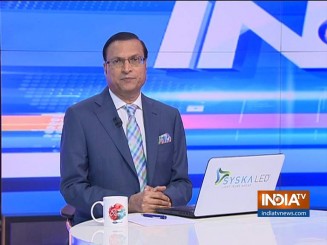 Stepping up his attack on Congress and other opposition parties in Maharashtra and Haryana, Prime Minister Narendra Modi on Monday again dared the opposition leaders to declare “if they have guts” in their election manifestos that they would restore provisions of Article 370 and Article 35A in the Constitution if they ever came to power.
Stepping up his attack on Congress and other opposition parties in Maharashtra and Haryana, Prime Minister Narendra Modi on Monday again dared the opposition leaders to declare “if they have guts” in their election manifestos that they would restore provisions of Article 370 and Article 35A in the Constitution if they ever came to power.
Modi alleged that the Congress and other opposition parties were speaking on the lines of the neighbouring country on the issue of Article 370, at a time when the national sentiment is in favour of its revocation.
Modi asked the Congress to explain “its love for Article 370″ to the families of security personnel killed in Kashmir during counter-insurgency operations.
He said, “the brave jawan of Haryana, who was protecting the innocent citizens of Kashmir, fell to bullets of terrorists. His body came back home wrapped in national tricolour. Ask those mothers how many sons of the soil lost their lives because of your love for Article 370. Ask how many were widowed and how many children were orphaned.”
It is true that Modi can correctly feel the pulse of the people. He takes hard decisions keeping the interests of people in his mind. He also knows how to use, when to use and where to use the outcome of such decisions for political gains. No other contemporary Indian leader has mastered this art better than Modi.
Modi knows that political leaders in the last 70 years clearly lacked the guts to revoke Article 370 giving special status to Jammu and Kashmir. Naturally, under present circumstances, one can ask, which leader has the guts to say that he would work for reversing the revocation of Article 370.
That is why, I say, Modi’s decision on Article 370 is historic and irreversible. Such a hard decision was essential to bring the state of Jammu and Kashmir into the national mainstream, so that the fruits of development can reach each and every Kashmiri.
Already the results are showing. Youths are turning up in large numbers in police and army recruitment drives, girls are turning up for recruitment as Special Police Officers, and the young Kashmiri generation, which wants peace in the Valley, has for the first time been spared the atmosphere of hopelessness created by the political parties. Article 370 now lies in the dustbin of history, as a painful relic of the past.
Click Here to Watch Full Video | Get connected on Twitter, Instagram & Facebook
How Modi, Xi have taken India-China relations to a new level
 History was being written on the seashore of Mahabalipuram near Chennai on Friday, when Prime Minister Narendra Modi hosted Chinese President Xi Jinping at a two-day informal summit and discussed bilateral and regional issues amidst verdant surroundings.
History was being written on the seashore of Mahabalipuram near Chennai on Friday, when Prime Minister Narendra Modi hosted Chinese President Xi Jinping at a two-day informal summit and discussed bilateral and regional issues amidst verdant surroundings.
A one-on-one dinner between the two leaders near the historic Shore Temple, earlier scheduled for one hour, stretched on for over two-and-a-half hours, with both statesmen sharing their visions of development and discussed issues relating to trade and terrorism.
According to Foreign Secretary Vijay Gokhale, Modi told Xi that his renewed mandate was for economic development, and the Chinese leader responded by saying that he was ready to work closely with the Indian PM. The atmospherics and personal chemistry reflected the “personal rapport” between the two leaders, said Gokhale.
It was an idyllic setting in the backdrop of a 1,400-year-old temple complex, with Modi donning a white shirt and veshti that sent a strong message with political overtones to the people of Tamil Nadu.
As the bilateral meetings resumed on Saturday morning before Xi leaves for Nepal, the indications were clear. Indian embassy on Friday relaxed visa rules for Chinese citizens allowing them multiple-entry 5-year visa at affordable rates.
With the world watching the Modi-Xi informal summit closely, the signs that emanate are clear. China, embroiled in a bitter trade dispute with the US, seeks India’s support, and India wants to wean China away from its all-weather friend Pakistan.
The body language of the Chinese leader on Friday clearly indicated that Xi understands India’s position on issues like terrorism, Kashmir and CPEC, and wants to take India-China relations to another level.
Both Modi and Xi have changed the matrix of India-China negotiations. Till 2014, the leaders of both countries used to stick to stiff and formal protocols, with little talk and more posturing. That has changed after Modi took over and launched his personal style of diplomacy with world leaders.
The ease with which both the leaders met, walked and talked clearly indicates that India-China relations have reached a new high. Never had Xi Jinping showed such bonhomie and ease with any world leader of repute. Whether it was Gujarat, or Wuhan or Mahabalipuram, the tone has been set as India and China embark on a new phase of peace and friendship.
Click Here to Watch Full Video | Get connected on Twitter, Instagram & Facebook